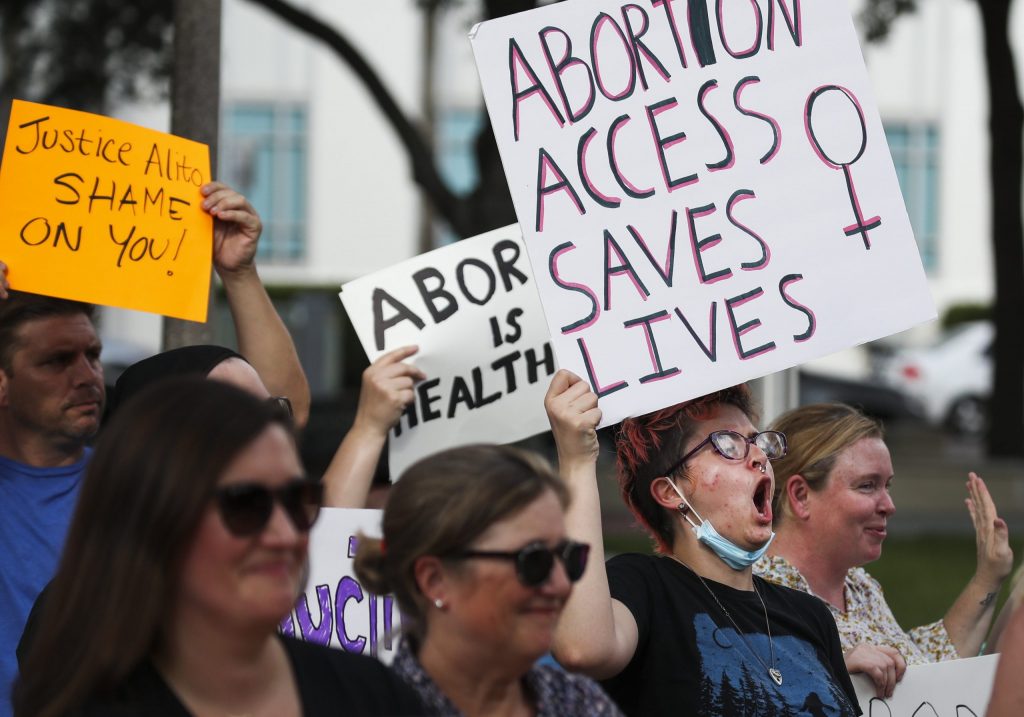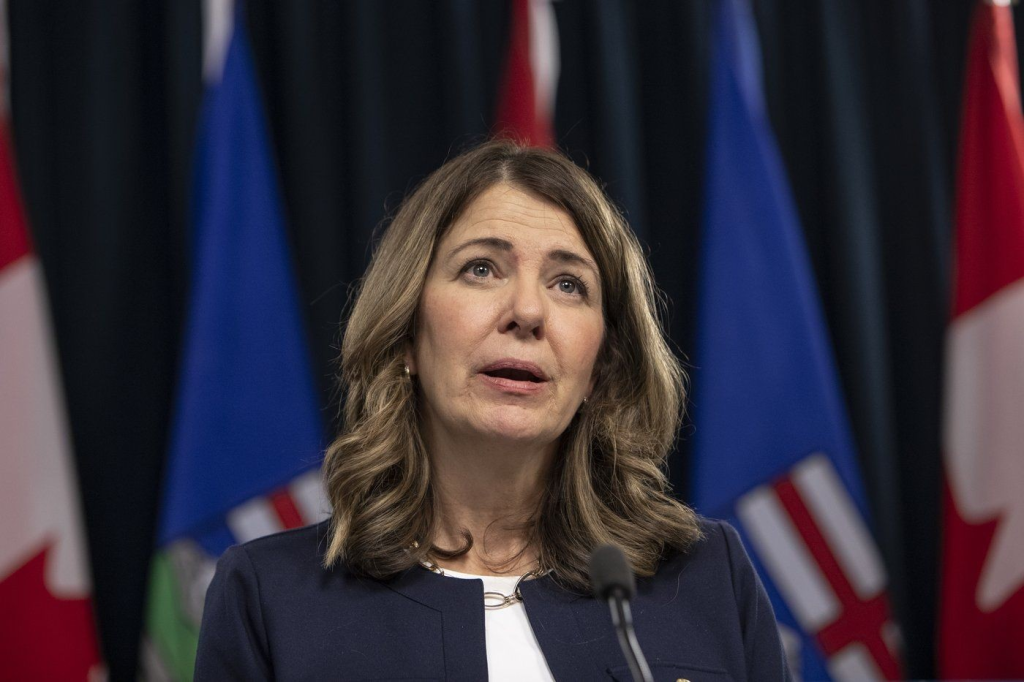Roe v. Wade: Canadians should never take their rights for granted, says professor

Posted Jun 24, 2022 3:51 pm.
Last Updated Jun 24, 2022 3:52 pm.
The loss of constitutionally enshrined protections for abortions in the U.S. on Friday puts basic human rights on the line, a University of Calgary professor warns.
The decision was the culmination of decades of efforts by abortion opponents, made possible by the right-wing side of the court, fortified by three appointees of former President Donald Trump.
Justice Clarence Thomas, part of Friday’s majority, called on the court to overturn other high court rulings protecting same-sex marriage, gay sex, and the use of contraceptives.
Dr. Rebecca Sullivan, professor at the University of Calgary, gender and sexuality program, says this decision is a massive step backwards for reproductive justice across all gender lines.
“Never take rights for granted.”
Sullivan says Canadians need to remain alert and vigilant to maintain their basic human rights.
“The situation is very specific to the United States, but that doesn’t mean that reproductive justice is a given in Canada — quite the opposite,” Sullivan said.
Sullivan says there is a strong anti-abortion political force predominately within conservative parties, and people can protect their rights by voting in elections.
“We can’t presume this won’t happen here … we know it can happen here.”
“Make a decision. Who you are voting for must have reproductive and gender sexual rights absolutely — a 100 per cent — confirmed before you place that vote,” Sullivan said.
She adds divisive and hateful political arguments have also been leveled against 2SLGBTQIA+ people, and against women in Canada, attacking their rights.
Sullivan says in the 1980s, women in Toronto travelled to Buffalo for abortion, she expects now, we’ll be seeing the reverse.
“That’s expensive — that’s exhaustion — that’s not the solution. And some states have even passed laws suggesting that even if you cross state lines to precure an abortion, that constitutes trafficking,” Sullivan said.
Lorian Hardcastle, associate professor in the Faculty of Law and Cumming School of Medicine at the University of Calgary, says this is going to have a significant impact on low income people, as wealthy people will still have the option to travel to get an abortion.
“You can try to restrict abortion, but ultimately, what often ends up happening, is that you only restrict safe abortion,” Hardcastle said. “People find other ways. Certainly, we saw this before Roe v. Wade, where people would access abortion through unlicensed providers, and other unsafe means.”
Some Canadian women have limited access to abortion
Hardcastle says some Americans will travel to other states or other countries to get an abortion.
Canada doesn’t have spare reproductive healthcare capacity, as some Canadian women already struggle with getting access to abortion services, she explains.
She adds in Canada, “there is the challenge to travel to the limited number of clinics. Medication abortion in Canada was not approved for many years, and when it was approved, Health Canada had many restrictions on it.”
Hardcastle also adds abortion is a time sensitive procedure, and it will be difficult for American women to access Canadian services in a timely manner because of the limited capacity.
She suggests expanding access to medication abortions as opposed to surgical abortions, where family doctors can offer a prescription and women can take the medication in the privacy of their own home.
READ MORE:
-
Justin Trudeau denounces horrific U.S. Supreme Court ruling on abortions
-
Supreme Court overturns Roe v. Wade, allowing states to ban abortions
Hardcastle says the way it is now, Canadian healthcare providers selling services to people from other countries that don’t have insurance here is not against the law.
She adds Canadians can’t be complicit in breaking any potential US laws around abortions in Canada.
“There are still ways that women’s rights can be eroded here.”
In a statement to CityNews, Alberta’s Associate Minister of Status of Women, Jackie Armstrong-Homeniuk, says the Roe v. Wade being overturned in the United States is the “decision of a foreign court that does not apply to Canada.”
“The legal status of abortion in Canada falls strictly within federal jurisdiction. There has been no change in policy in our province and none is proposed,” Armstrong-Homeniuk said.
With files from Gaby Rios, Lucas Casaletto, and The Associated Press








